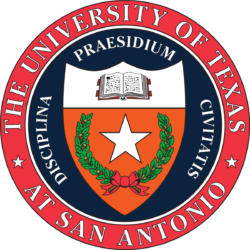Paper Presentation
This paper addresses the challenges that our Lesson Study (LS) project faced after the COVID-19 outbreak, as well as the opportunities that arose during the development and virtual implementation of lessons. Drawn from a larger study of tertiary STEM LS focused on creating interdisciplinary connections between academic literacy and STEM content competencies, this paper focuses on data from online LS meetings, video recordings and field notes of classroom observations, and student surveys of lessons delivered from late Spring and through Fall 2020. Our presentation addresses the following research questions:
- What are the challenges and opportunities faced by a tertiary Lesson Study group during the COVID-19 outbreak?
- How did Lesson Study groups adapt to the challenges and opportunities of online teaching and learning during COVID-19?
Faculty disengagement and failure to complete a full LS cycle were reported as challenges while successes included strengthening the collaborative teams and creating online resources for students.
Proposal
The College of Engineering, College of Education, and the College of Sciences have been collaboratively working on the development and implementation of new methods of instruction, and curricular changes through Lesson Study collaboration at a university in Texas. This project is a response to low passing and graduation student rates in STEM courses at this university.
The Lesson Study (LS) is a professional development approach intended for instructional improvement and student achievement (Wood & Cajkler, 2017). LS provides STEM faculties with opportunities for collaboration, discussion, and practice using research-based educational strategies. LS is typically conducted in in-person settings (e.g., Lewis & Perry, 2014; Fernandez, 2010), and less frequently so in online contexts. Some studies have used online tools and online collaboration (e.g., Nurpandi, Langi, & Bandung, 2013; Hird, Larson, Okubo, & Uchino, 2014) but complete LS instruction and collaboration is rare in the literature. The COVID-19 outbreak provoked a major disruption in the LS redesign and implementation in both the engineering and physics courses, forcing LS communities to change their ways of collaborating and instructing. Thus, this presentation centers on the challenges and learning opportunities that came with the “new normal” online LS format adapted by an LS community in a university context.
This paper draws on data from LS cycles taken from the Spring, Summer, and Fall semesters of 2020, including video-recorded LS meetings, video recordings and field notes of classroom observations, and student surveys. The study aims at responding to the following research questions:
- What are the challenges and opportunities faced by a Lesson study group during the COVID-19 outbreak?
- How did a Lesson Study group adapt to the challenges and opportunities of online teaching and learning during COVID-19?
Our results identified challenges and opportunities of lesson study as a professional development tool that resulted from COVID-19. Some challenges include sudden changes that required transitioning from in-person to online instruction, causing a lesson to be planned but not implemented. Additionally, the physics lesson study group discontinued their meetings due to low faculty attendance and engagement in meetings. Both engineering and physics faculty struggled to find time for further commitment and target lesson planning as they were occupied with the transition to virtual instruction and other contingency plans in face of COVID-19.
Conversely, results indicated several learning opportunities for the LS group. To address the challenges, collaborative teams were strengthened to include more personnel including graduate assistants, other faculty, and academic leaders. Additionally, student feedback indicated that the online learning resources that were developed by the LS teams were helpful for their learning. Furthermore, the collaborative teams established meeting new norms to positively structure each meeting in the LS cycle, thus efficiently re-modifying the original lesson plan drafted prior to the pandemic.
We further discuss lessons learned from undergoing difficulty as we made a swift adaptation to online instruction and collaboration, keeping our focus on improving instruction, increasing learning, and sustaining LS practice. This paper contributes to the literature by sharing our experiences in resolving emerging challenges and strategizing in an LS online format.

